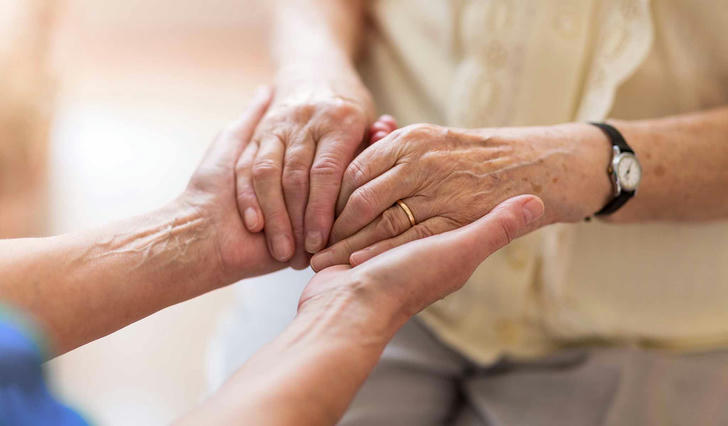Early Signs of Dementia: How to Detect and Treat It Early
As we age, many seniors may experience some memory loss, which may be normal aging. However, in some cases, these changes may be early signs of dementia. This article will help you understand the early signs of dementia, how to detect it early, and what to do about it.

1. What is dementia?
Dementia is a disease that affects the brain and may gradually affect memory, thinking, language, and the ability to do daily activities. There are many types of dementia, the most common of which is Alzheimer's disease. Although memory loss is a common symptom, dementia is more than just "forgetting things" and may also affect a person's behavior, emotions, and judgment.
As we age, we may experience some forgetfulness, but this does not mean dementia. Dementia is a progressive disease, which means that its symptoms will gradually become more severe over time.
2. Early Signs of Dementia
Memory Problems
Frequently forgetting things that just happened. For example, you may forget what you just talked about with someone or forget about a recent appointment.
Not remembering important dates or events, such as birthdays, anniversaries, or even daily activities.
Language barriers
Having trouble finding the right words or speaking fluently. For example, you may often pause when talking to someone or have trouble finding the words you want to say.
Repeating what you said or asked. For example, you may ask the same question over and over again in a short period of time.
Disorientation
Having trouble with your sense of time and place. You may forget dates or get lost in familiar places or even lose your way home.
You may forget things you did or were doing and feel lost.
Decreased judgment
Having trouble making everyday decisions. For example, you may make poor financial decisions or have trouble figuring out what is right and what is wrong.
You may behave irrationally, such as wearing clothes that are not suitable for the season or forgetting to turn off appliances.
Mood changes
You may have mood swings and become easily agitated, depressed, or anxious.
Personality changes, such as someone who was once optimistic and cheerful suddenly becoming more paranoid or losing interest in daily activities.
Withdrawal and loneliness
Loss of interest in activities that you once enjoyed and no longer participate in social activities.
Become more isolated, avoid interacting with family and friends, and may refuse invitations or social activities.
3. How to deal with early signs of dementia
If you or your loved ones show early signs of dementia, don't panic. Taking timely action can help control the disease and improve quality of life.
Seek medical help
When you notice symptoms, you should see a doctor as soon as possible. The doctor can do some tests to confirm whether it is dementia or another health problem. Early diagnosis helps to take early intervention measures.
Cognitive training
Through some mental exercises and cognitive training, you can help keep your brain active. Common training methods include reading, doing puzzles, learning new skills, etc.
Medication
Some medications can help slow the progression of symptoms. Although there is currently no drug to cure dementia, some medications can reduce symptoms to a certain extent and help maintain quality of life.
Lifestyle adjustments
A healthy lifestyle is essential for brain health:
Diet: Choose foods rich in antioxidants and healthy fats, such as fish, nuts, vegetables and whole grains.
Exercise: Regular exercise helps increase blood flow to the brain and maintain cognitive function.
Sleep: Make sure you get enough sleep every day to keep your brain rested and restored.
Social activities: Interact more with family and friends to maintain social and mental health.
4. How to help people with dementia
If your loved one has been diagnosed with dementia, it is crucial to support them. Here are some suggestions to help them:
Establish a routine
Create a regular living environment for the patient to help them maintain stability. Daily activities and tasks should have clear arrangements and expectations to reduce confusion.
Emotional support
Understanding and care are the most important. Maintain communication and interaction with the patient to help them feel safe and loved.
Provide appropriate care
Consider whether external help is needed, such as home care or admission to a professional nursing facility. If the patient's symptoms are severe, more professional care services may be required.
Case: Mary's story
Mary is a 72-year-old retired teacher who recently found that she often forgot the names of her family and friends, and even forgot what she had just done. At first, she thought it was just a normal phenomenon of aging, but her daughter noticed that these memory problems seemed to be getting worse, especially Mary began to get lost in familiar environments. Through timely examination and diagnosis, Mary was found to have mild cognitive impairment, which is an early manifestation of dementia. Despite this, Mary successfully delayed the progression of the disease and maintained a good quality of life by participating in cognitive training and changing her lifestyle.
5.Conclusion
Early detection of dementia is crucial, but through effective intervention, patients and their families can still cope with challenges together and improve their quality of life. Remember, early detection and early response can provide patients with a longer period of independent living and reduce the burden on the family.
